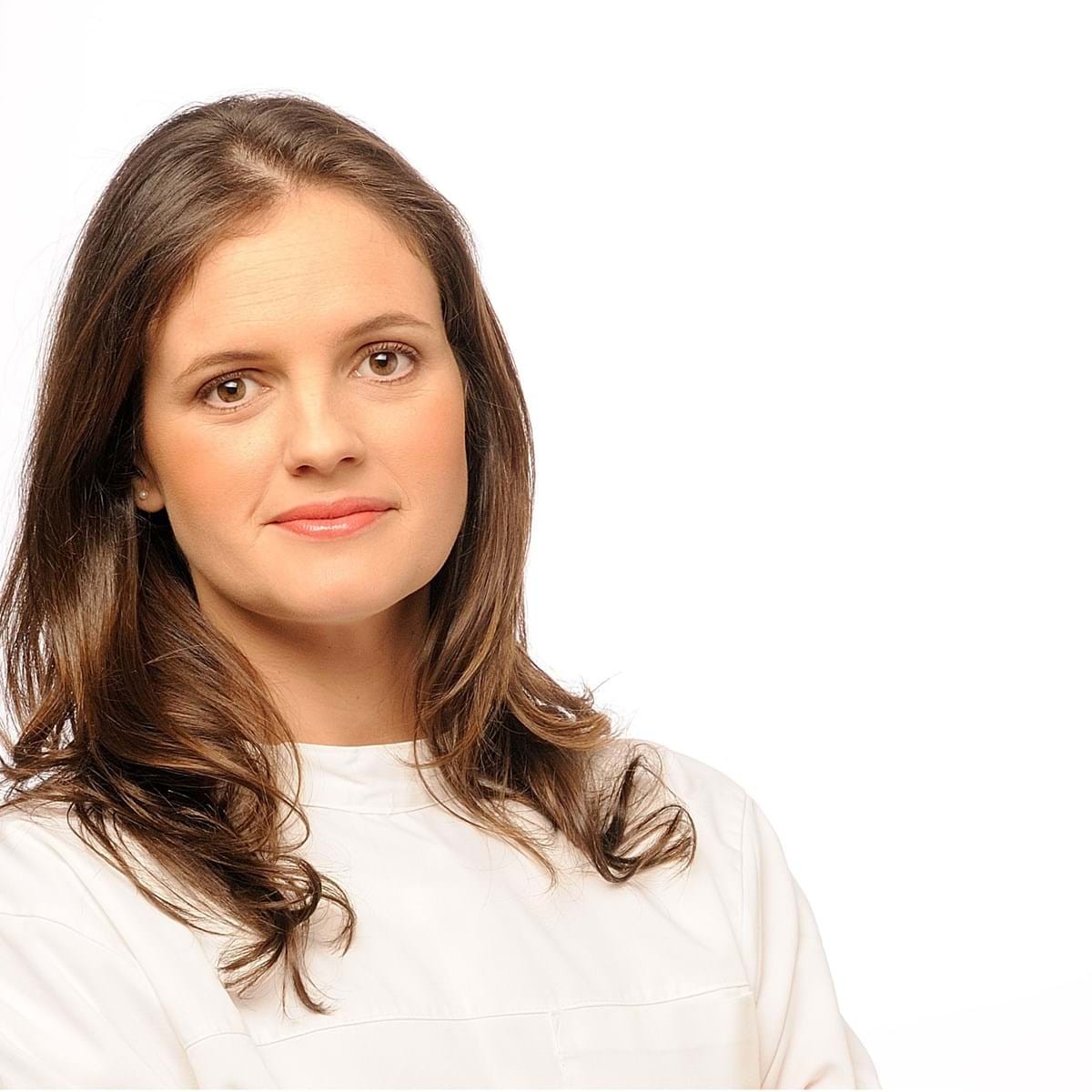Cakes, soft drinks, hamburgers, pizzas, chips, snacks and ice cream are just a few examples of foods that are no longer on the menu of bars, canteens and state schools' vending machines at the start of the new school year. With Dispatch No. 8127/2021, the current government aims to limit access to harmful foods by children and adolescents. A measure that predicts the development of healthy eating habits and the decrease of childhood obesity rates. Still, is this a democratic and easy-to-apply measure? Will schools be able to guarantee the enforcement of the new set of standards? And where does the role of parents and nutritionists fit in?
There were many questions at the base of a controversy that inflamed civil society during the month of August, and which can now be answered by Catarina Sousa Guerreiro and Joana Sousa, both nutrition specialists and professors of the Nutrition Sciences Degree at FMUL.

Professor Catarina Sousa Guerreiro

Professor Joana Sousa
With the new measure, we went from a recommendation to a ban. Ethically, is this the right procedure?
Catarina S. Guerreiro: Dispatch no. 8127/2021 of the Office of the Assistant Secretary of State and of Education published in Diário da República no. 159/2021, Series II of 2021-08-17, establishes the norms to be taken into account in the preparation of the menus and in the sale of foodstuffs in stands and vending machines in educational establishments in the state network of the Ministry of Education. It is incumbent upon the Government and in accordance with the State Budget for 2020, to implement a set of measures to promote health in general, in particular the adoption of healthy eating habits, as well as to regulate the mode of organization and functioning of school meals, including information on the foods that may or may not be made available, as well as on the composition of the meal and components and ways of preparing the menus. It is to fulfil this purpose that the Government issued this dispatch.
Joana Sousa: Assuming that the school is par excellence a health-promoting place because it is where children spend most of their day, and the fact that food is one of the main risk factors that contributes most to the main causes of death and disability, we do not understand this measure as a procedure that raises ethical issues. At school or outside, any student can consume any food they want, knowing, however, that at school (a health promoting place) the purchase of certain foods is restricted.
Does food solve all childhood/juvenile obesity problems? Should this measure be reinforced with more additional measures, such as food literacy, increasing the number of hours of physical activity in schools?
Joana Sousa: Eating is the behaviour that most contributes to excess weight. But it is clear that we cannot think of food as an isolated variable, but rather framed in a healthy lifestyle. When we talk about changes in behaviour, we are referring to something extremely complex, difficult to achieve with only isolated measures.
Catarina S. Guerreiro: In fact, it is essential to combine these measures with global and inter-sector strategies in an integrated manner at population levels: national, regional and local. And it is at the local level that the school plays an extremely important role and where this integrated work has to be done. The successful implementation of a measure like this will certainly depend on what is referred to in articles 10 and 11 of this dispatch, which advocates a programme to support health promotion and education. “The measures provided for in this dispatch must be accompanied by programmes designed with health authorities, with the objective of informing and training for informed and healthier choices, promoting the increase in food literacy of children and young people”. If this is implemented, then this measure is no longer perceived as radical, isolated and not very fruitful. Now, it is also crucial to provide schools with professional with specific skills to do so. We are obviously referring to nutritionists. Expecting teachers alone to do this type of action is a huge mistake.
In your opinion, does this entire process require the presence of nutritionists in schools, with the task of ensuring the implementation and monitoring of this measure, together with so many others that are necessary?
Catarina S. Guerreiro: It will be completely impossible otherwise and, if it turns out to be that way, this measure will be a failure like so many others. We don't want that. We want the necessary conditions to be created so that we can say within a few years that this measure has been effective. It will be up to the Ministry of Education, the Local Government and so many other actors to actively assume the emerging need to provide the technical staff of education establishments with nutritionists. We cannot wait any longer, on behalf of the health of all but, in particular, of the health of future generations.
And are state schools prepared to adapt the food offer of their bars and canteens, that is, even healthy, is it possible for these institutions to offer variety?
Joana Sousa: In fact, within the timeframe of the need for the Dispatch to come into effect (30 days after August 17th), it will be impossible for schools to do more than look at the foods that are listed and ensure that they are not available. It cannot be demanded that, in such a short time and in addition to all the other responsibilities, the school community plans and implements the operationalization of the Dispatch, and to continue offering variety. It is very likely that at this time many educational establishments offer a “food desert” in their buffets, as the vast majority of what characterized this offer was focused on what cannot now be made available.
Catarina S. Guerreiro: In order to guarantee choice, there is a profound technical-scientific incapacity of schools of not having professionals qualified to implement this measure in their structure, as I mentioned earlier. So that the variety of offer can exist, knowing how to make the correct choices and combinations, adjusted and allied to health promotion, will be up to qualified professionals. There is much more food variety in addition to the foods identified in the Dispatch. Evidence, innovation and differentiation, combined with imagination and attractiveness are fundamental and, in this specific context, this is the remit of nutritionists.
In the midst of this prohibition, what is the role of parents? What guarantees can the new food measure in state schools offer if food at home is the opposite?
Joana Sousa: Of course, parents have a fundamental role, but this responsibility goes beyond the school gates and must be allied with the school's role. They are independent things, but they cannot be dissociated. Parents have a very important role to play in their children's education, but we must not forget that the school also has one and that is why it must itself be a health promoter. This measure is not intended to “give guarantees” to parents, but to help with a huge public health problem such as the eating habits of children and adolescents in Portugal. Let's not forget that 1 in 3 is overweight and almost 1 in 5 is obese.
Catarina S. Guerreiro: By analysing the results of the National Food and Physical Activity Survey (IAN-AF 2015-2016), we were able to see the picture of the Portuguese population and know what the Portuguese eat. Regarding the consumption of fruit and vegetables, close to 70% of Portuguese children and adolescents do not comply with the recommendations of the World Health Organization (WHO) of a daily consumption of at least 400 g/day of fruit and vegetables. The high consumption of soft drinks and/or smoothies is a reality, especially in the adolescent age group, where more than 40% drink this type of beverage daily.
Thus, the school will play its role with the implementation of this measure, desirably allied to a structured and integrated implementation, monitoring and evaluation with the objective of informing and training for informed and healthy choices. It would be desirable for parents to also guide their children's diet based on the principles of healthy eating, but then it will be up to the parents to decide. We would like to point out that all of this goes beyond school and parents. We cannot leave this all-important responsibility centred on just two actors.
Given that it will be possible to purchase other types of food in the establishments around the schools, should the food supply in these establishments be also regulated?
Joana Sousa: We are talking about things that are different and we cannot deviate from this Dispatch, trying to find “devil's advocates”. Of course, the food environment around schools should be a concern and the evidence is clear at this level. It is in the geographical area within a perimeter of 1000-1500m from educational establishments that there is a greater concentration of food establishments whose food supply does not have the best nutritional quality. But the problem is upstream and not downstream. The real priority is to empower these children and young people so that they can, in an informed and conscious way, make healthy food choices. This way, we believe that, if we are effective, we will have healthier future generations and that they themselves will be able to shape the surrounding food supply.
What can be done to promote healthy eating among children and young people, that is, to make them want to choose healthy foods?
Catarina S. Guerreiro: An integrated strategy. More than providing a healthy food supply in schools, it is important that children and young people understand the reason for this and other measures and that, in a participatory and collaborative way, they can adopt a healthy lifestyle throughout their growth. For this to happen, it is essential to look at food as a whole and provide educational establishments with professionals with the technical and scientific know-how to frame this measure in a global strategy for healthy eating at school. Fortunately, there are some national examples of the importance and necessity of this approach, but unfortunately they are still very scarce.
Joana Sousa: The Sintra Grows Healthy Project is a good example of this and the FMUL is proud of it. It is a community-based participatory intervention project for the promotion of healthy lifestyles in the school context, aimed at children in the 1st cycle of basic education. It already involves more than 5000 children in the municipality and has enabled very important results in its various axes of action (school curriculum – Health at Table; school food environment (school food policy) and physical activity). It is promoted by the Municipality of Sintra and the FMUL assumes the technical-scientific leadership of the project, being responsible for its evaluation. It's a good example of what must be done!
Does this government dispatch arrive at the right time? Or is it a little late?
Joana Sousa: There are never any right or wrong times. There are times. We must ensure that this moment can be considered a successful moment. There is a long way to go for this to happen, but it is a moment that we should all be happy about.
In the List of prohibited foods and mandatory foods, is there anything that could be changed?
Catarina S. Guerreiro: Like any other normative document, this Dispatch is not watertight and will not close in on itself. It is a document for which it is necessary to develop and use an effective follow-up and monitoring model, which guarantees due effectiveness in ensuring and controlling the quality of its purpose. It may be necessary to review and update it.
Isabel Varela
Editorial Team

